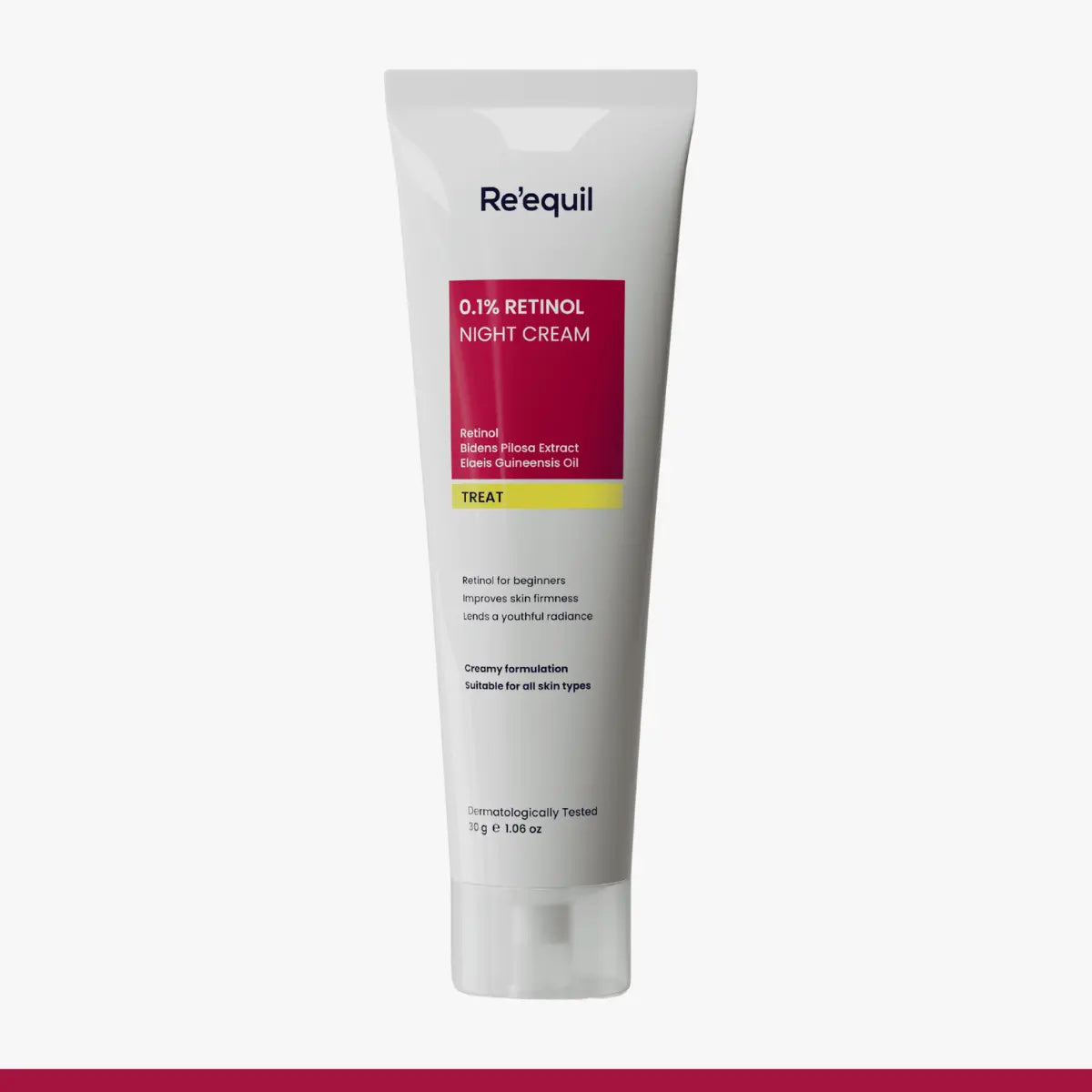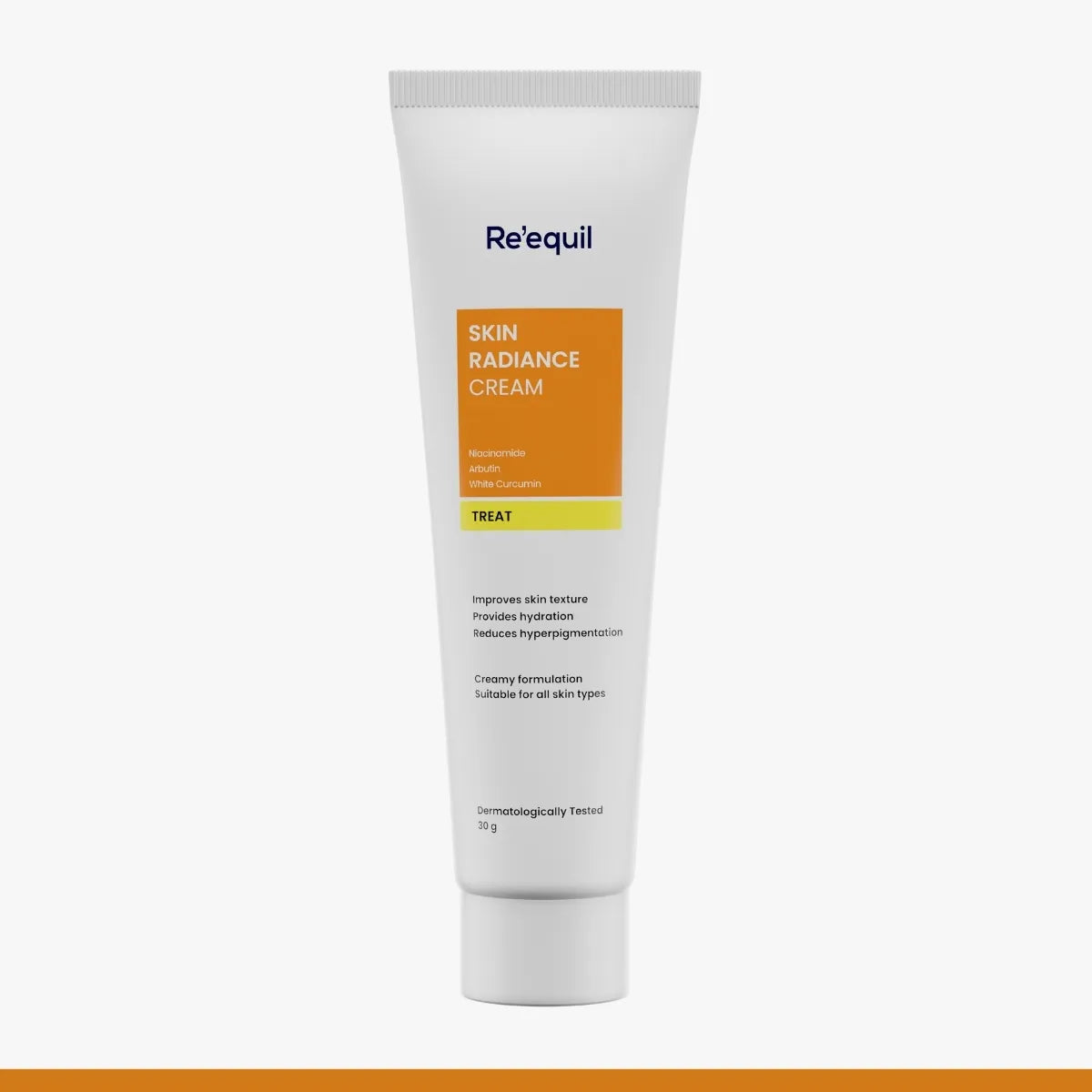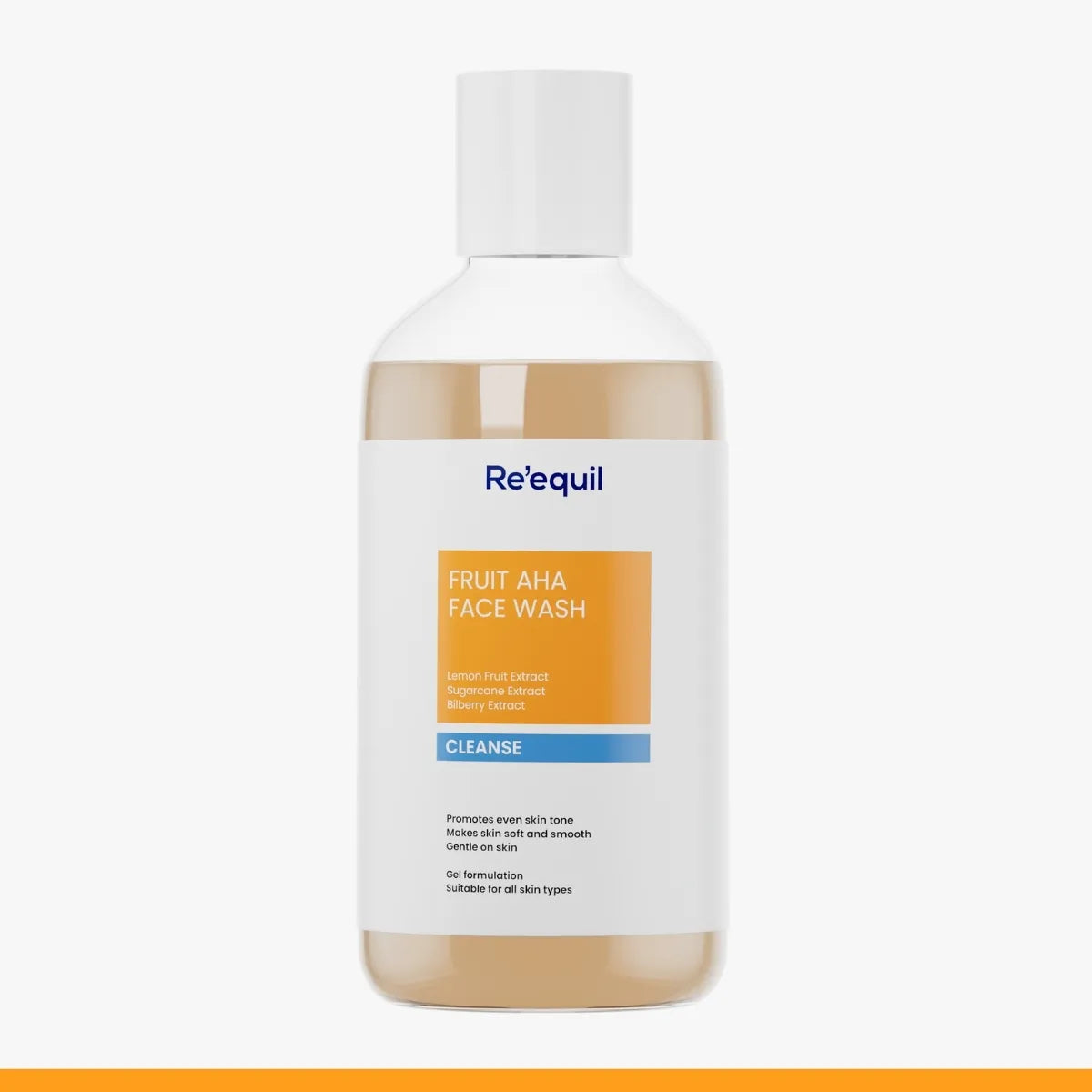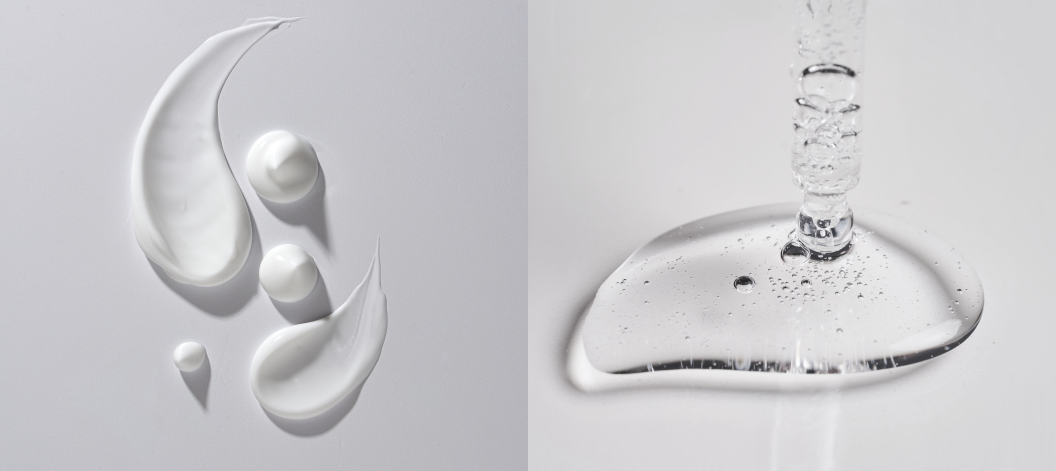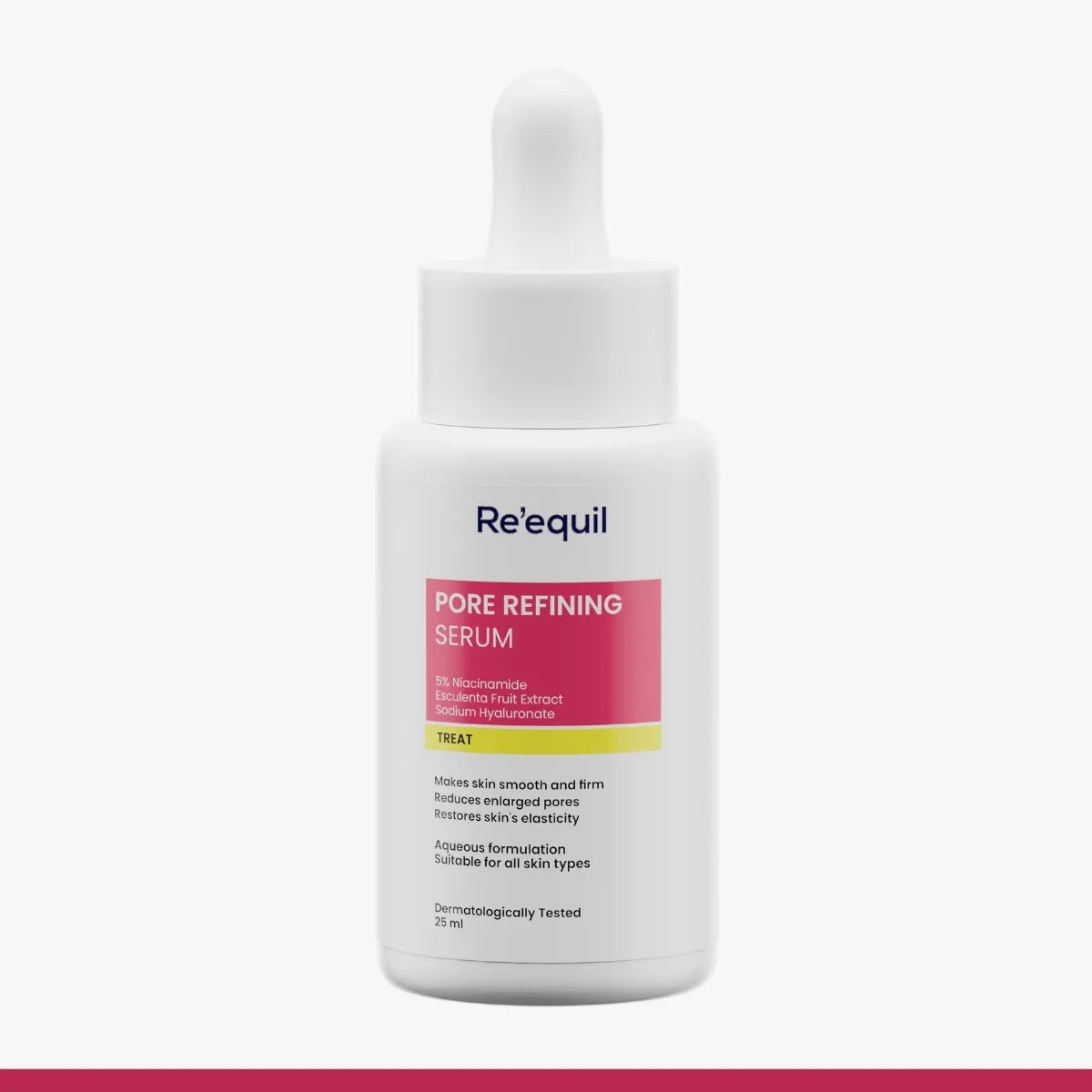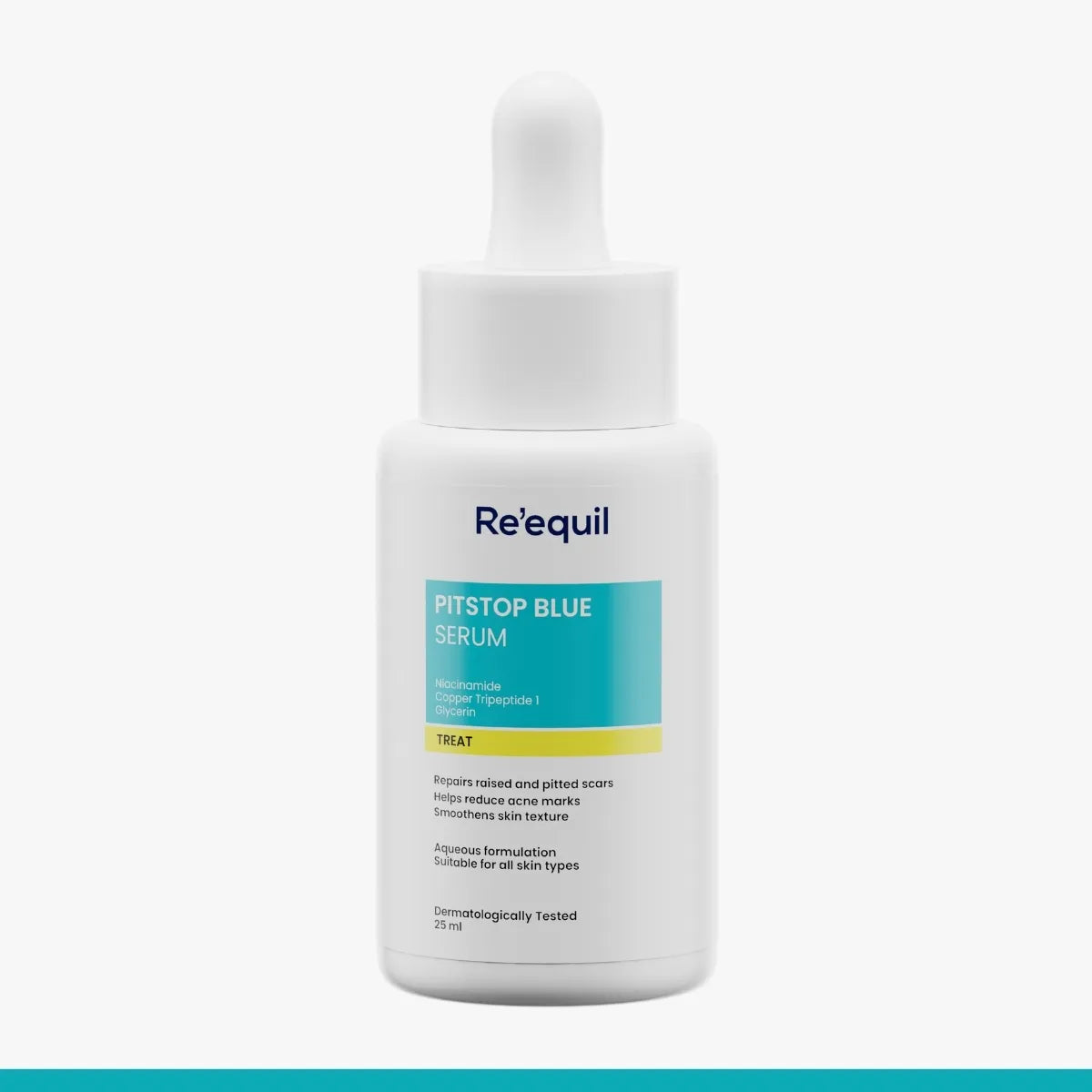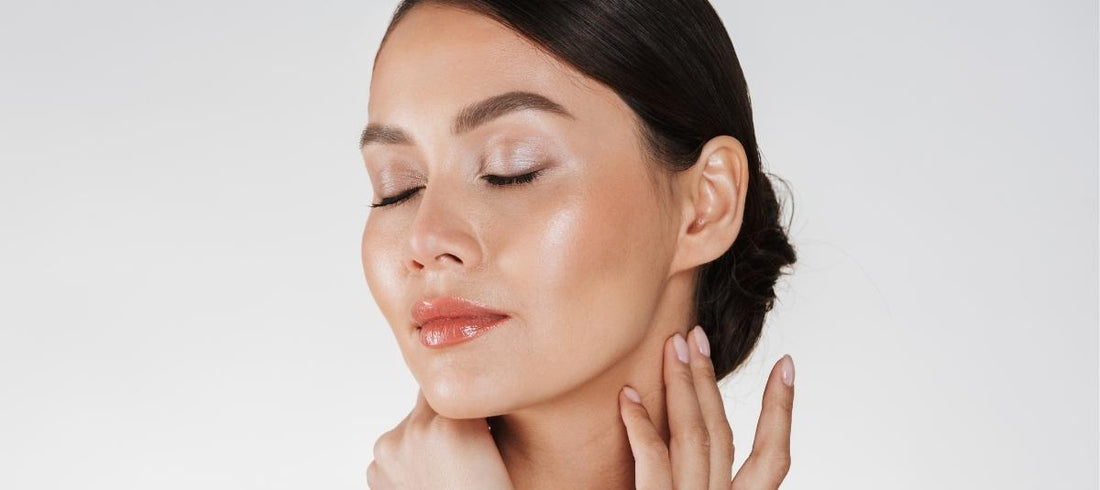Experts say serums and moisturisers are essential if you want to build an optimum skincare routine.
A study says facial serum in combination with a moisturiser can improve uneven skin pigmentation and skin elasticity.
But, why exactly do you need both of them? Or, can you get away by using just one of them?
Most importantly, what is the difference between a serum and a moisturiser?
In this post, we will dig deep into serums and moisturisers. We will tell you 3 key differences between serum and moisturiser.
First, let’s cover the basics—how serums and moisturisers work on your skin
Serums have a watery to gel-like or oil-based texture. Whereas, moisturisers have a denser texture—like lotions and creams.
But, that’s not all. It’s not just about the texture of the product. How they work on your work is what matters.
And when we are talking about two of the most used skincare products—serums and moisturisers—how they work on your skin is worth finding out.
So here is a brief introduction to both:
What is a serum?
Serums are topical skincare products that generally contain higher concentrations of active ingredients—available in water-based and oil-based, according to a 2023 research paper published by IJCRT.
Face serums contain large quantities of small molecules of active ingredients—that penetrate deep into the skin—from the stratum corneum (outer layer of your skin) to your dermis.
That’s why a serum gives more noticeable results—even after a few days of using it.
Moreover, face serums are considered highly effective in treating fine lines and wrinkles.
According to a 2011 study, serums when combined with a gentle face wash and a moisturiser can deliver prominent results and help reduce the appearance of fine lines and wrinkles.
Another 2011 study says that hydrating facial serums are well-tolerated; and can reduce dryness and increase skin softness within 2 weeks of usage.
Serums containing hydrating skincare ingredients such as Hyaluronic Acid can be very effective for dry and dehydrated skin.
What is a moisturiser?
Facial moisturisers are proven to effectively improve skin barrier function and prevent skin dryness—along with many more benefits, says a recent study.
Moisturisers hold in the moisture in your skin—or restore the lost moisture in the outer layer of your skin.
To put it simply, moisturisers mainly have 3 functions. First, if your moisturiser contains hydrating skincare ingredients, it can extract the water from the deeper layers of your skin and make your skin look hydrated and soft.
Second, moisturising agents like emollients (glycerin) can protect your skin from environmental damage and prevent roughness.
Third, ingredients such as Ceramide—commonly found in moisturisers—strengthen the skin barrier and ensure it works optimally.
What’s the actual difference between a serum and a moisturiser—it’s quite simple
Both are effective skincare ingredients and can help your skin in several ways.
But if we were to differentiate between a serum and a moisturiser—like what’s better for targeting your skin concerns—the following are 3 parameters you can refer to.
1. The purpose: Serums are formulated to target specific skin concerns. Whereas, moisturisers are for hydrating your skin and to strengthen your skin barrier.
Let's face it, most of us have specific skin concerns we want to tackle, like dark spots (hyperpigmentation), sun damage (photoaging), or breakouts (acne). This is where a serum plays a crucial role.
As stated above, serums contain large quantities of small molecules that penetrate your skin—better than any other skincare product. That deeper reach translates to more targeted action on your specific concerns, leading to more noticeable results.
Whereas, moisturisers are formulated to strengthen your skin barrier and provide optimal hydration. If you pick up the right moisturiser for your skin type, it can help regulate sebum production, protect your skin from dirt and pollution and even tackle early signs of ageing.
2. Strength: Serums have a higher strength of active ingredients as compared to moisturisers.
Active ingredients such as Niacinamide, Vitamin C or Salicylic Acid are known to target specific skin concerns. Now, you can find all these ingredients in Serums and Moisturisers as well. But, the strength can vary—sometimes greatly.
Serum contains higher strength of active ingredients so it can help you tackle your skin concerns faster.
3. Consistency: Serums are intended to penetrate deep into your skin. Whereas, Moisturisers are meant to work on the surface of your skin.
Serums have small molecules as compared to Moisturisers which have larger molecules. That’s why Serums are able to penetrate into deep layers of skin and deliver targeted active ingredients. On the flip side, Moisturisers stay on your skin’s outer layer and provide hydration.
Should we use serums and moisturisers together?
Definitely!
You can make Serum and Moisturiser a part of your skincare routine, using them together can help you boost the overall health of your skin.
Serum will deliver the active ingredients to your skin, whereas a Moisturiser will help lock in the serum in the skin.
Here is the best way to layer them together in your routine -
- Cleanse your face: Use a facial cleanser that suits your skin type and wash your face with lukewarm water.
- Serum: Apply the desired quantity of serum to your entire face.
- Moisturise. Wait for 30 to 60 seconds for the serum to get absorbed. Then, apply your moisturiser.
How to pick the right active ingredient in serum or moisturiser?
To give your skin what it needs—you need to understand how active skincare ingredients work.
Moreover, you need to be mindful of the fact that if your Serum and Moisturiser contain ingredients that don’t mix well—it may lead to side effects.
The table below explains how certain active skincare ingredients work—so that you can pick the right one—as per your skin concerns.
|
Active ingredient |
What it does |
|
Vitamin C |
Protects skin from UV rays, prevents photoaging, and Improves overall skin texture and appearance |
|
Niacinamide |
Prevents acne, reduces hyperpigmentation, and increases skin hydration |
|
Glycolic Acid, a type of AHA (alpha hydroxy acid) |
Sheds dead skin cells and prevents the formation of acne |
|
Salicylic Acid, a type of BHA (beta-hydroxybutyric acid) |
Decreases redness, reduces excess oil, and unclogs pores |
|
Hyaluronic Acid |
Hydrates skin, reduces the appearance of fine lines and wrinkles |
|
Peptides |
Boosts skin’s overall health, reduces inflammation and prevents acne |
FAQs
What to apply first, serum or moisturiser?
Always apply the Serum first. To get the most out of your skincare routine, layer your product, from thinnest to thickest textures. Since Serums are water-based—and thus have a thin texture—they should be applied first. Whereas, Moisturiser has a dense texture and must be applied at the end of your routine—or before your sunscreen.
Is it OK to use serum without moisturiser?
Yes, you can use Serum without adding a Moisturiser to your skincare routine. However, not using a Moisturiser may reduce the efficacy of your serum. Because without a moisturiser, your skin may not be able to lock in the moisture or absorb the active ingredients delivered by the serum.
Can I use face serums every day?
Yes, you can. Serum can deliver great results for your skin if you use them everyday—even twice a day—in your AM & PM routine.
What should I do after applying serum on my face?
Wait for at least a minute for the serum to get absorbed into your skin. Then, apply a moisturiser—and during the day—make sure to conclude your skincare routine with sunscreen.
